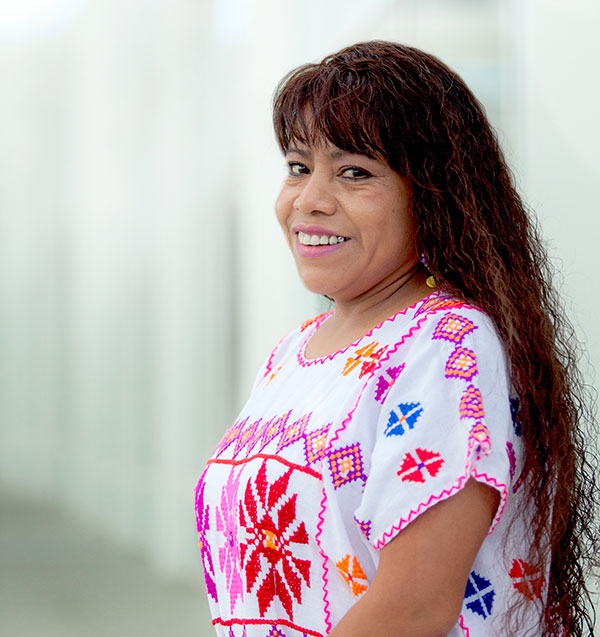A Voice for Immigrants
| by Eva Gudbergsdottir

Immigrant farm workers have been the backbone of the agricultural industry in the Salinas Valley long before it became known as Steinbeck Country. Today, many hail from the poorest and most isolated areas of Mexico, where access to formal education is limited, and once in the United States, they work grueling days to help harvest lettuce, strawberries, and other crops that American consumers have become accustomed to finding in every supermarket.
More than 20,000 of these immigrants speak no English or Spanish, but rather one of several indigenous languages, such as Mixteco, Zapotec, and Triqui. When these workers seek health care or community services, they often run into problems communicating with providers.
Angelica Isidro is working on a solution to this problem. A 2013 Intensive English as a Second Language (iesl) graduate who came to the U.S. in 1991 from Oaxaca, Mexico, to work in the fields, she is the cofounder of Indigenous Interpreting+, a program offering interpretation services in dozens of indigenous language and dialects. One of the greatest challenges her program faces is finding interpreters who speak each of these many variations.
Most of the group’s work comes from Natividad Hospital in Salinas, but they also offer a range of related services, such as court interpreting, remote interpreting, and training. Already considered a model for other indigenous-language service providers, the program’s long-term plan is to rely less on community donations and more on service fees.
For More Information
Eva Gudbergsdottir
evag@middlebury.edu
831-647-6606
